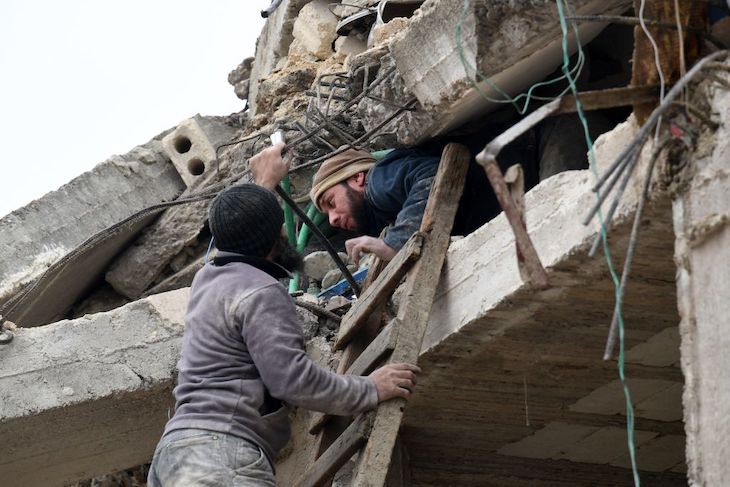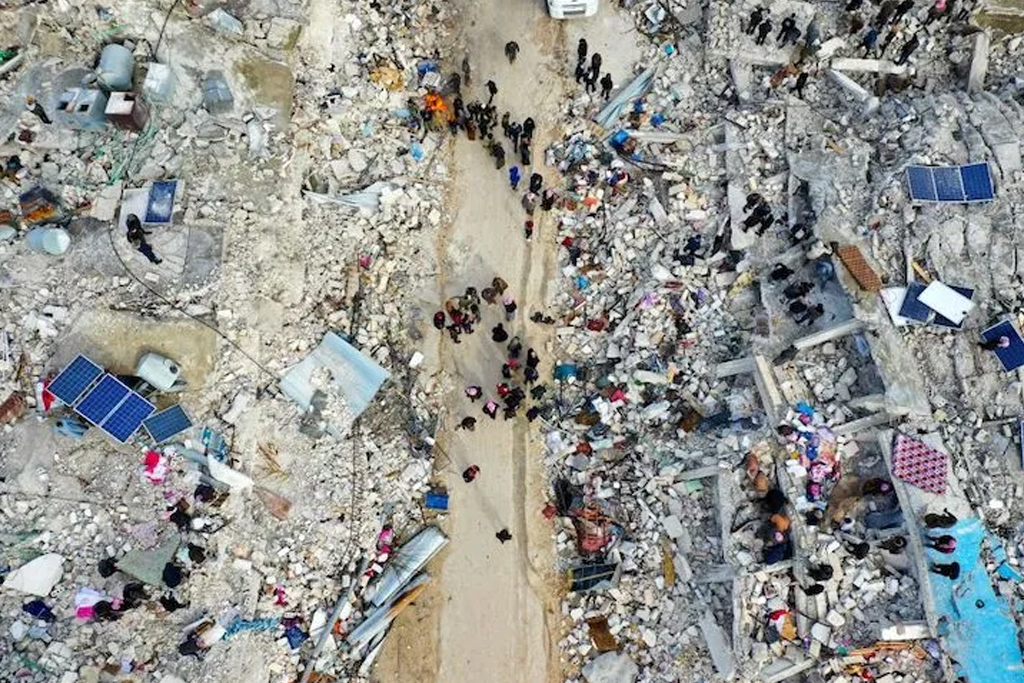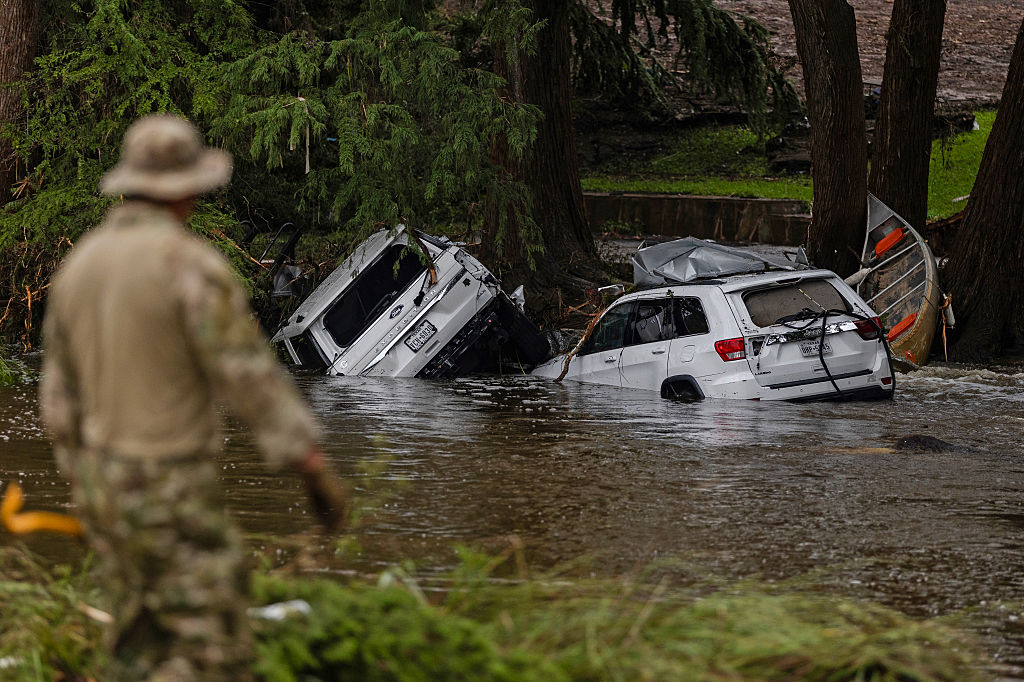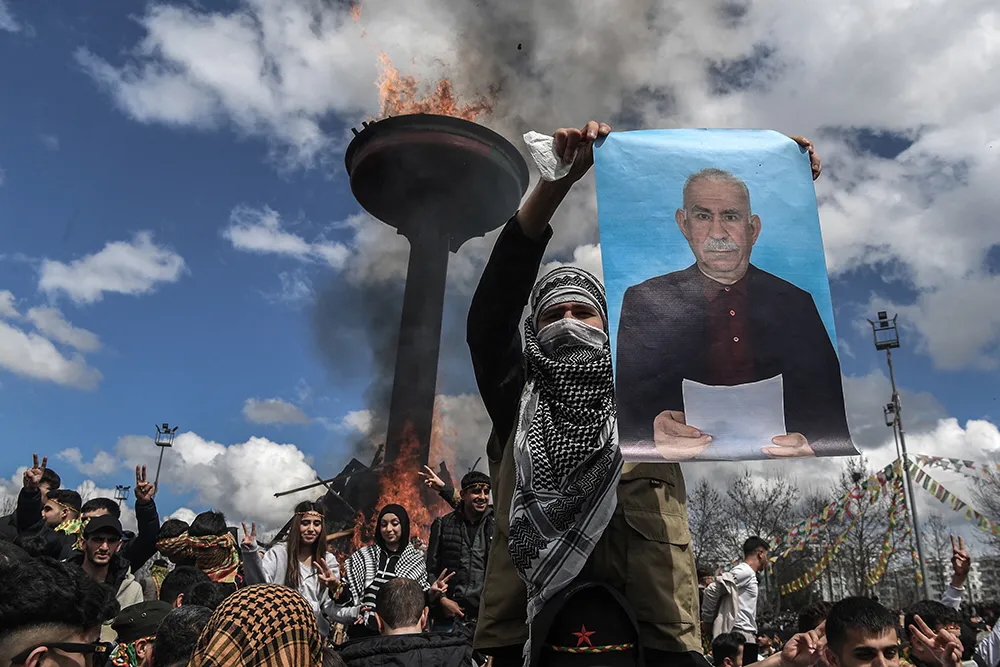Turkey is reeling after a massive 7.8 magnitude earthquake killed more than 1,000 people and left hundreds more injured. Several hundred people in northern Syria are also believed to have been killed. The quake, which struck near the city of Gaziantep in southeast Turkey in the early hours of the morning, was felt as far away as Lebanon and Jordan, on the far side of the Mediterranean.
Another quake of 7.6 magnitude struck the nearby Kahramanmaraş region a few hours later at 1:27 p.m. local time (5:27 a.m. ET), according to the Turkish Disaster and Emergency Management Presidency (AFAD). The images and video emerging from Turkey, showing flattened buildings and piles of rubble, are devastating. Desperate rescue operations are underway across much of southern Turkey, but survivors say that help in many areas has still not arrived — hours after the earthquake struck. Many of the victims are already desperately poor: 8.3 million people live in the southeast Anatolian region, a number swollen by at least a million refugees from the war in Syria, just across the border.
Almost 3,000 buildings collapsed, according to the latest announcement by Turkish president Erdoğan.
“I woke up suddenly as the television fell on the floor,” said Meral Kaya, a teacher in Şanlıurfa. “The whole building was swaying. I ran to fetch my children and my elderly parents. We had to hurry down the stairs all the way from the thirteenth floor. Several of the walls in the building cracked. We are waiting in the car. It’s really cold outside and we can’t drive anywhere because of the rain and fog.”
Heavy snowfall in much of Turkey is hampering relief efforts, as locals and emergency services search for hundreds thought to be trapped under rubble.

“It lasted for more than a minute,” Mustafa Işık, a teacher in Diyarbakır said. “We heard some explosions and the electricity went out. We can still feel some aftershocks but we had to go back inside the house because of the cold.”
Many countries, including Britain, Germany, France, India, Israel and Russia, offered help. EU high representative Josep Borrell announced that search and rescue teams from ten member states have been mobilized.
Local residents reached by phone in Turkey’s Hatay province spoke of chaos and said there was no sign yet of a coordinated rescue effort. “A lot of buildings collapsed in the neighborhood, but no help has arrived,” Özlem from Hatay said.
“The situation is dire in the region,” Suzan Şahin, a Member of Parliament from Hatay said on local TV. “Not a single person from AFAD has arrived yet. Almost seven hours have passed.”
The only runway at the regional airport was also damaged, making it impossible for flights to land and take off.
“People in my hometown are digging their neighbors out from the rubble with their own hands,” said Vecih Cüzdan, who decided to drive from Istanbul to Hatay, which borders Syria on the Mediterranean coast, with his brother to help their relatives. They still could not reach some of their family members.
“We have been expecting a major earthquake in the southeast Anatolia region for five years,” Dr. Savaş Karabulut, a geophysicist said. “200-300 km of the East Anatolian fault appears to have been ruptured. In practical terms, that means the death toll will be in the thousands, maybe even tens of thousands. Further earthquakes in the region are also to be expected.”
The last earthquake of such magnitude hit the country was in December 1939 when at least 39,000 people are known to have died in northeast Turkey. The country is criss-crossed by two seismic fault lines, known as the Eastern Anatolian and North Anatolian. In August 1999, 17,000 were killed in an earthquake with an epicenter near Izmit in western Turkey. For now, the death toll from this morning’s earthquake is much lower. But what seems certain, given the scenes of destruction, is that the tally is likely to rise considerably.
This article was originally published on The Spectator’s UK website.

























